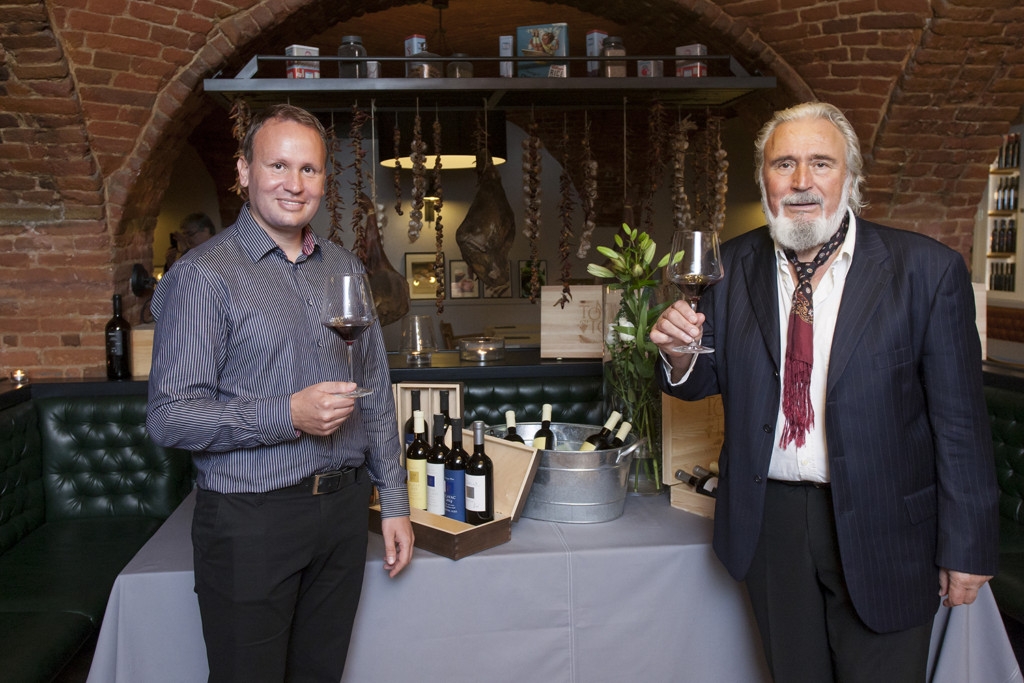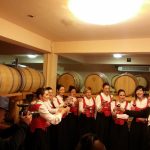The wines and liqueur were presented by the winery owner himself, Andro Tomić, underlining his production of wine cherishes authenticity and tradition, but always experiments with new ideas, perfecting wine production with modern technology and constant investment in knowledge, Story reported on November 25, 2016.
In an inspired speech, Academician Tonko Maroević stressed the great Andro Tomić received a respectable compliment for his wines from the icon of Italian winemaking Elio Altareo. On the role of family Tomić in Croatian winemaking spoke Saša Špiranec, along with prof. Nikola Mirošević and Mladen Vukmir.
Andro Tomić founded the winery in 1993, with the belief that on Hvar, with indigenous varieties, favourable climate and exceptional vineyard positions, the family tradition of wine production over 150 years old can be continued. Vines were brought to Hvar island by the ancient Greeks, with Hvar inhabitants nurturing them for centuries.
“Tomić winery is a family winery on Hvar island, with 12 employees, most with higher degrees of education. We are investing more and more in knowledge and technology, leaning on EU funds. At the same time we honour the long tradition of winemaking and winegrowing on Hvar island, preserving the best of it,” pointed out Andro Tomić.
Sebastian Tomić added the words: “Annual production is around 100-130.000 bottles, depending on the year, which is our planned production in the future. The goal is not to increase the amount of production but raise quality to strengthen the image of our wines and winery.”
The Tomić winery cellar is on family property in the Mina bay in Jelsa. More significant vineyards are near Vira bay, close to Hvar town, in the Stari Grad valley, near Jelsa and on the southern slopes (Ivan Dolac and Sv. Nedjelja). Tomić wines are produced from various varieties, dominated by Plavac Mali in the reds and Pošip, Bogdanuša, Maraština and Prč among the whites. They also use Drnekušica, Cabernet Sauvignon, Merlot, Cabernet Franc, Yellow Muscat and a few domestic varieties.
Guests were served Pošip, a fresh wine with a full body, but balanced acids, rich in aromas typical of the variety such as apricot and other pit fruit, then fresh citrus and finally Mediterranean ethereal herbs. Part of the wine, some 30%, was aged for 6 months in new French and Slavonian 225 litre barrels (Garbelloto, Seguin Moreau, Golub) on fine yeasts (sur-lie) which give it fuller body and specific taste notes (toast, brioche, champagne association).
Then came the Plavac. The favourite and best-seller label of the Tomić winery, with typical variety aromas (plum, sour cherry, dark berry fruits and Mediterranean herbs) was rounded off in a short aging in used oak barrels, which gives the wine discrete notes of wood, coffee and spices. The specificity of wine is the tenderness and elegance which the Tomić winery strives to gain from the usually bold nature of this indigenous Dalmatia variety. The wine thus keep the variety authenticity, but is also drinkable and fresh for everyday use.
Following Plavac was the Caplar. As the name suggests (CA for Cabernet – PLA for Plavac – R for registered), it is a coupage in the 50-50% ratio. Cabernet – with slightly higher acids and a different aroma profile, adds freshness and elegance while corralling the rusticality of Plavac Mali. Aromas of sour cherries, plums and Mediterranean herbs – typical of Plavac – are supplemented by characteristic Cabernet notes of black currant, tobacco and soil. Aging in French barrique barrels for 12 months adds barely noticeable notes of smoke and spices.
The next wine was the Plavac Mali Barrique, a superior dry red wine and the panache of the winery. Natural intensity of variety aromas of dark and ripe fruits of the Plavac (sour cherry, plum), Mediterranean herbs and saltiness was rounded off and tamed with 12 months of aging in a combination of new and used French and Slavonian barrique barrels. This way the wine received noble notes of spices, leather, tobacco and its tannins were rounded. The particularity of this wine is an elegance of the French type, as the wine teds to preserve both the typical aromas of Plavac Mali and a wine style that is less robust and more focused on structure, balance and length of taste.
In the end they served Euforija, a carob and sage liqueur.











